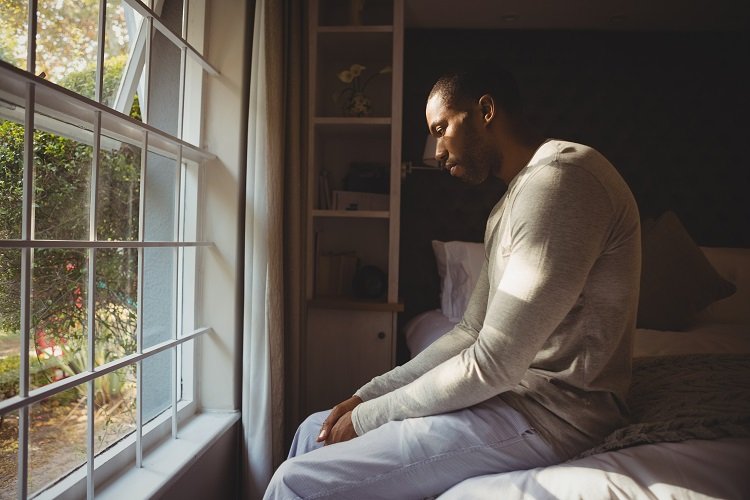If you’re reading this, it’s likely because you’re looking for advice on talking to your partner about erectile dysfunction. While the subject can be difficult to broach, it’s important that you do so if your partner is experiencing one of the many different types of ED.
ED can be a complex topic to discuss for several reasons for both the partner and the person experiencing it. For one, it can be embarrassing for men to talk about. Additionally, many people may feel like they’re not doing their job as partners if they can’t “perform” in the bedroom.
If your partner is affected by ED, it’s important to remember that they’re not alone; the prevalence of erectile dysfunction in the world as a whole is expected to grow to 322 million men by 2025. Making ED a lot more common than both men and women even realize.
With that being said, let’s talk about how you can support your partner dealing with ED.
Supporting Your Partner in Dealing with Erectile Dysfunction
Erectile dysfunction is a medical condition that can impact anyone, regardless of age or gender. It’s not just something old guys get after turning 50. Young men can also experience erectile dysfunction, and various factors can cause it.
Although the chance of developing ED can jump up 5-15% when you reach older ages, many young men across the world develop a form of erectile dysfunction. A study published in the Journal of Sexual Medicine discovered that ED affected about 26% of men under the age of 40.
ED is also not a one size fits all. There are many types of ED and many different causes, including:
- Health problems (Diabetes, high blood pressure, etc.)
- Emotional stress
- Lifestyle choices (Excessive smoking and/or drinking)
- Diesesas (Such as Peyronies and Parkinson’s)
- Medications (Side effects of some medications cause it)
- Physical injury
- Phycological (Anxiety, stress, depression)
- Relationship issues
- Low testosterone
On top of what causes it, it will also change how you treat it.
One of the most important things you can do if you want to support your partner dealing with ED is precisely what you are doing now… learning more about erectile dysfunction. Reading helpful information and just learning everything you can about it will show how much you want to support them.
Starting by understanding what causes ED, treatment options for the different types, and everything else. This is the best way to support your partner.
In addition to learning more about erectile dysfunction, being able to communicate and talk to your partner about their ED is going to be essential. However, this can be extremely difficult for some, so let’s go ahead and dive into navigating this process.
Understanding Your Partner Dealing with ED
First and foremost, let’s think and talk about how someone dealing with ED might be feeling. It can be tough on anyone who is dealing with erectile dysfunction, and it can be an incredibly uncomfortable topic for them to discuss not only with someone like a doctor but also with their partner.
For older men, it could make them feel inadequate or as if they are letting their partner down. For younger men, they could be feeling incredibly embarrassed, depressed, or self-conscious now that they are having these issues at a younger age.
Regardless of age, though, erectile dysfunction and the nervous system are directly connected and can cause a lot of psychological and emotional feelings and stress. The inability to get or maintain an erection can make them feel like they are not good enough in bed or that they are not worthy of their partner anymore since they cannot satisfy their partner. That can lead to feelings of self-doubt and insecurity, which can be really difficult to deal with.

In addition to that, once someone starts to experience these feelings increasingly, it can be even more difficult for them to talk to their partner.
Insecurity breeds self-doubt and fear, which can wrap us tightly in an emotionally painful experience. This toll not only manifests on our mental health but bleeds into every other area of our lives, like work and relationships.
If your partner is experiencing ED, it’s normal to feel various emotions. You might be feeling anything from frustrated to helpless. The most important thing you can do right now shows support and understanding. Assure him that you’re in this together and want to help him through everything. Be patient and understanding as he works through his feelings, and be sure to let him know how much you care about him.
Now with all of that in mind, you can see why it can be so challenging to deal with ED on the physiological and emotional side of things and why it can be so difficult to talk to your partner about it.
Talking to Your Partner About ED
Even though it can be extremely difficult and a real test of a relationship, it’s important to be supportive and understanding toward your partner.
If you’re unsure how to start the conversation, try expressing your concerns in a non-judgmental way. You could say something like, “I’ve been noticing that you’ve been having some problems getting or maintaining an erection. Is everything okay? I want to help if I can.”
Be prepared for your partner to be defensive or reluctant to talk about the issue at first. It may take some time for them to open up and feel comfortable discussing ED with you. But remember that communication is key in any relationship, and in this scenario, it’s no exception.
If your partner struggles to talk to you about ED, you can do a few things to help the conversation.
Try not to be judgmental or make assumptions about why they’re experiencing difficulty. This will only make them feel worse and less likely to want to talk to you about it.
Instead, focus on being supportive and understanding. Reassure them that you still love them and find them attractive, no matter what.
It’s also important to remember that erectile dysfunction is a medical condition, and it’s nothing to be ashamed of. It’s 2022, and many well-tested treatments are proven to help. So encourage your partner to talk to their doctor and explore all of the available options.
Also, remember that this isn’t your fault or your partner’s fault; no one is to blame here. Make sure to express how much you cherish them throughout the conversation. Kindness, love, and patience are essential when having this discussion.

It’s also important to let your partner know that ED doesn’t reflect their masculinity and remind them that nothing has changed in terms of how you feel about them. This will be reassuring for them. You can also remind your partner that you’ll get through this struggle together, letting them know they aren’t alone.
If you try to talk to your partner about it, but they immediately become defensive or if they refuse to talk about it, don’t push the issue. Let it go and try again at a later time. They may just not be ready yet to have that conversation and feel too embarrassed at that moment.
Lastly, if you’re struggling to deal with your partner’s ED, remember that there are plenty of resources out there to help.
Moving Forward with ED
One last thing we want to talk about today is moving forward in a relationship while also dealing with ED. Although your partner may be experiencing erectile dysfunction and assuming that you’re talking to your partner about their ed, you can still enjoy intimacy together while going through treatment options.
You can adjust your sex life and find other ways to please and satisfy each other. This can also help so that they don’t feel pressured to perform. Feeling close to each other can include more than sex in bed.
Also, keep in mind when talking about ED, there is situational erectile dysfunction. Situational erectile dysfunction, or SED, is a type of ED that only occurs only in certain situations. For example, it may happen when your partner is stressed out, anxious, or super drunk. Most of the time, situational ED is linked to sexual performance anxiety.
If your partner is only experiencing SED, it’s still important to talk about it. However, with this type of ED, if you can narrow it down to know exactly what causes the situation, you can do your best to avoid those types of circumstances that may cause poor performance. Limiting the times it happens.

Regardless of the type of ED your partner has, though, there are a couple of things you can do to maintain your intimacy still:
- Talk about the feelings you have for each other
- Do fun activities together, such as hobbies and sports
- Make time for each other and go out on dates
- Try something in the bedroom that can bring pleasure without sex
- Consider speaking with a counselor or professional therapist that specializes in this area
How to Support Your Partner Dealing with ED
Men who are dealing with ED are likely to feel depressed or embarrassed that they are having these issues. They may feel like they cannot perform sexually or that they are less of a man. This can be really tough on the relationship, but with your support, your relationship will come out on top even stronger than before.
Dealing with ED isn’t going to be easy, but hopefully, this guide gave you some insight on how to talk to your partner about ED and how to keep your relationship stronger than ever.

